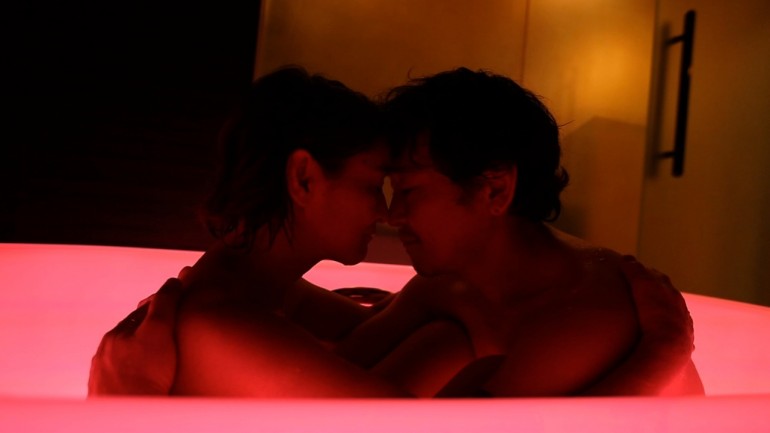By Joy Chiang Ling
Osaka, Japan is notorious for founding the love hotel – a short-stay hotel where people go to perform sexual acts in private. Today, love hotels are popular around the world because “desire could not be public and intimacy at home was never easy.” The Love Hotel, a documentary directed by Philip Cox and Hikaru Toda, reveals a more innocent side to the sinful establishments that have made Japan so infamous.
The film documents the goings-on of the Angel Hotel and the customers it serves. Some of the customers featured include Kazu and Fumi, a gay couple, Rika, a dominatrix prostitute and the Sakamotos, a sexually deprived married couple. Kazu and Fumi escape prejudice from Japan’s conservative society by booking rooms at the Angel Hotel, where they can enjoy each other’s company in peace. Rika uses the hotel to make appointments with her clients who are afraid to engage in their BDSM fetish with their more reserved partners. The Sakamotos, meanwhile, see the love hotel as a means of livening up their nearly non-existent sex life.
It is peculiar to see love hotels described as more innocuous than what the mainstream media makes them out to be. It is a place where couples can resolve sexual issues, where minorities can escape discrimination and where pensioners can feel young again. The hotel workers, too, are ordinary citizens trying to make a living. It seems that the directors’ ultimate goal is to convince audiences that love hotels can benefit communities, and that their prohibition by the government (which is revealed towards the end of the film) will only hurt average people who just want to make a living and enjoy life.
By doing so, the film also underscores some of the problems that plague Japan, and insinuates an uneasy fate for the Japanese population. The country, with its rising number of pensioners and scarcity of young workers, is suffering an economic and demographic decline. The Angel Hotel provides a glimpse into the symptoms of this problem – young people with outlandish fetishes uninterested in the normalcy of marriage, economical couples who waited too long to have a child, and single women who do not want to latch onto the commitment of a serious relationship, to name a few.
The Love Hotel is a documentary with a unique perspective. It enlightens viewers about a society that has, in recent times, been ridiculed for its bizarre sexual appetite. While this film does perpetuate these stereotypes, it also manages to accomplish several things: it defends the existence of love hotels, it exposes the wrongdoings of government intervention and it preserves a quirky aspect of Japanese culture that will probably vanish in the future. It is an interesting and thought-provoking film for people who aren’t shy to watch others expose themselves on camera.



Leave a Reply